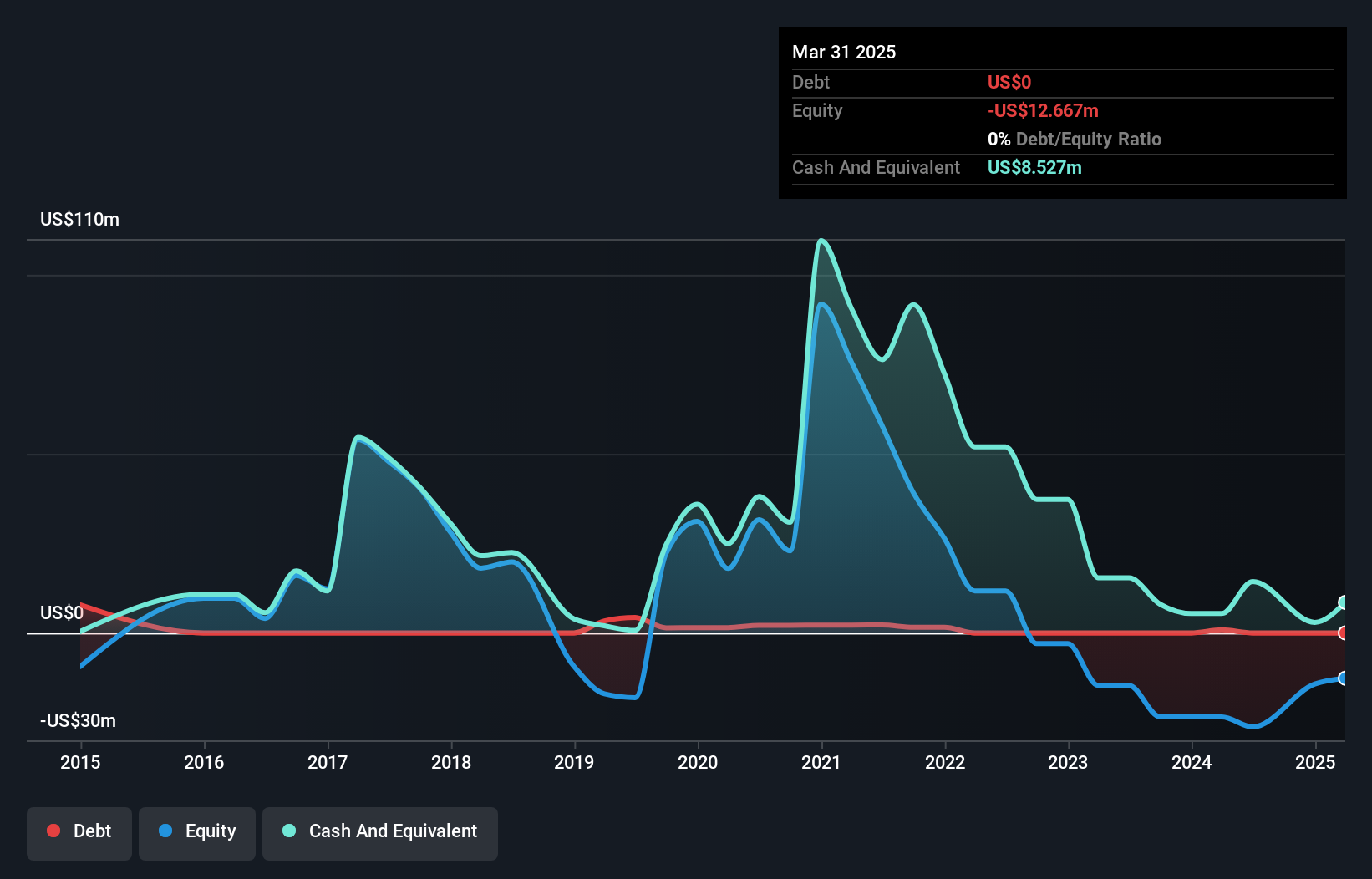Here's Why BeyondSpring (NASDAQ:BYSI) Must Use Its Cash Wisely - Simply Wall St News
Even when a business is losing money, it's possible for shareholders to make money if they buy a good business at the right price. For example, although Amazon.com made losses for many years after listing, if you had bought and held the shares since 1999, you would have made a fortune. But the harsh reality is that very many loss making companies burn through all their cash and go bankrupt.
So should (NASDAQ:BYSI) shareholders be worried about its cash burn? For the purposes of this article, cash burn is the annual rate at which an unprofitable company spends cash to fund its growth; its negative free cash flow. The first step is to compare its cash burn with its cash reserves, to give us its 'cash runway'.
A company's cash runway is the amount of time it would take to burn through its cash reserves at its current cash burn rate. When BeyondSpring last reported its March 2025 balance sheet in May 2025, it had zero debt and cash worth US$8.5m. Looking at the last year, the company burnt through US$16m. So it had a cash runway of approximately 7 months from March 2025. To be frank, this kind of short runway puts us on edge, as it indicates the company must reduce its cash burn significantly, or else raise cash imminently. Depicted below, you can see how its cash holdings have changed over time.

Check out our latest analysis for BeyondSpring
BeyondSpring didn't record any revenue over the last year, indicating that it's an early stage company still developing its business. Nonetheless, we can still examine its cash burn trajectory as part of our assessment of its cash burn situation. It's possible that the 5.7% reduction in cash burn over the last year is evidence of management tightening their belts as cash reserves deplete. Admittedly, we're a bit cautious of BeyondSpring due to its lack of significant operating revenues. We prefer most of the stocks on this list of stocks that analysts expect to grow.
Even though it has reduced its cash burn recently, shareholders should still consider how easy it would be for BeyondSpring to raise more cash in the future. Generally speaking, a listed business can raise new cash through issuing shares or taking on debt. Many companies end up issuing new shares to fund future growth. By looking at a company's cash burn relative to its market capitalisation, we gain insight on how much shareholders would be diluted if the company needed to raise enough cash to cover another year's cash burn.
BeyondSpring's cash burn of US$16m is about 23% of its US$69m market capitalisation. That's not insignificant, and if the company had to sell enough shares to fund another year's growth at the current share price, you'd likely witness fairly costly dilution.

Even though its cash runway makes us a little nervous, we are compelled to mention that we thought BeyondSpring's cash burn reduction was relatively promising. Considering all the measures mentioned in this report, we reckon that its cash burn is fairly risky, and if we held shares we'd be watching like a hawk for any deterioration. On another note, BeyondSpring has (and 3 which are a bit unpleasant) we think you should know about.
If you would prefer to check out another company with better fundamentals, then do not miss this list of interesting companies, that have HIGH return on equity and low debt or this list of stocks which are all forecast to grow.
Discover if BeyondSpring might be undervalued or overvalued with our detailed analysis, featuring
Alternatively, email editorial-team (at) simplywallst.com.
This article by Simply Wall St is general in nature. We provide commentary based on historical data and analyst forecasts only using an unbiased methodology and our articles are not intended to be financial advice. It does not constitute a recommendation to buy or sell any stock, and does not take account of your objectives, or your financial situation. We aim to bring you long-term focused analysis driven by fundamental data. Note that our analysis may not factor in the latest price-sensitive company announcements or qualitative material. Simply Wall St has no position in any stocks mentioned.










